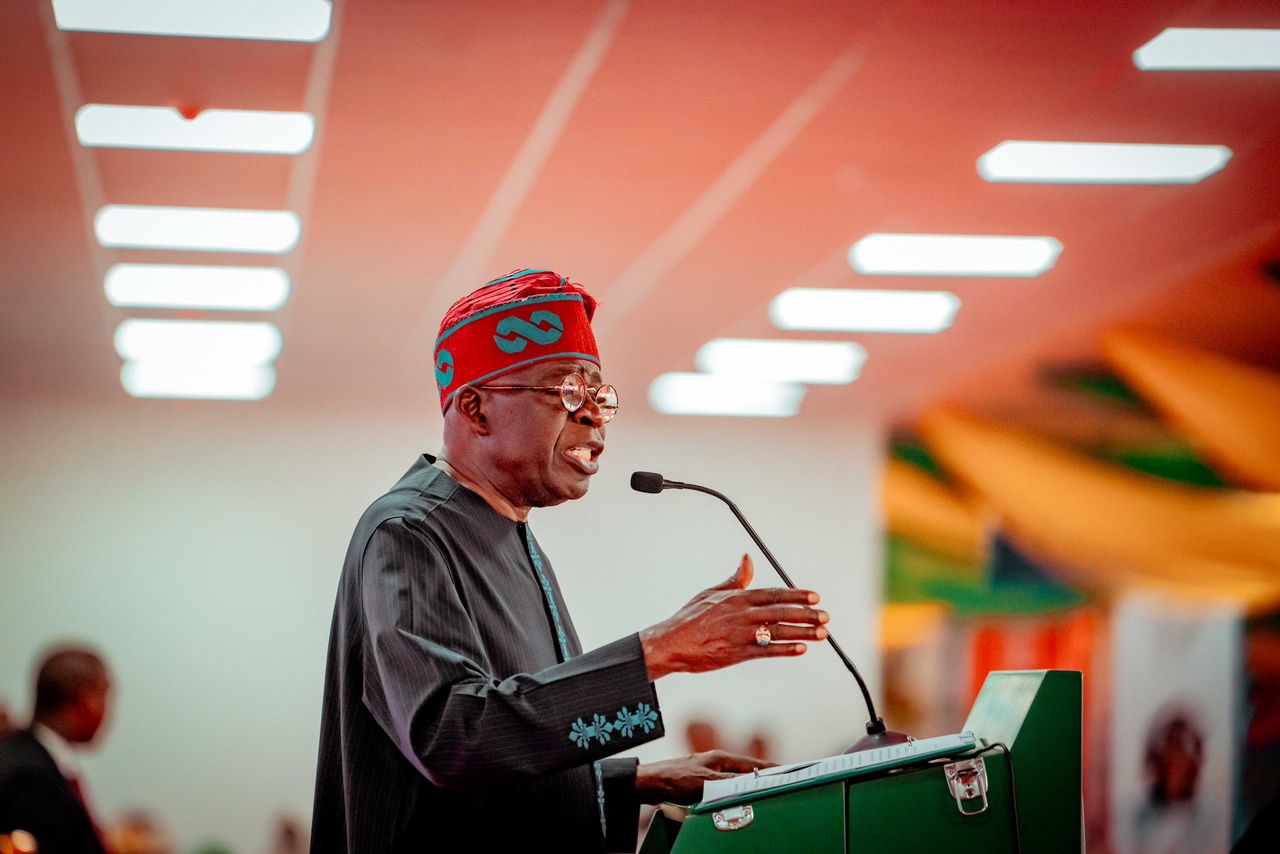Nigeria’s top security and defence chiefs have raised serious concerns about the growing threat of hunger and poverty, warning that these socio-economic issues are no longer mere developmental challenges but have evolved into critical national security risks.
This declaration was made on Monday at the 14th National Security Seminar in Abuja, where the National Security Adviser (NSA), Mallam Nuhu Ribadu, and the Chief of Defence Staff (CDS), General Christopher Musa, both stressed that economic deprivation and food insecurity are fuelling violence, insecurity, and social disintegration across the country.
The warning came on the same day President Bola Tinubu commissioned 2,000 tractors as part of the Renewed Hope Agricultural Mechanisation Programme, a nationwide initiative designed to mechanise farming, boost food production, and lift millions out of poverty.
NSA: Poverty, Hunger Driving Insecurity
Represented by Major General PP Mala, the NSA said that the Tinubu administration is addressing the vicious cycle of poverty and insecurity through agricultural reforms, social investments, and enhanced security interventions.
“Hunger and poverty are not merely social concerns; they are catalysts for insecurity, crime, violence, and social disintegration,” Ribadu said. “They form a vicious cycle that must be broken through a coordinated national effort.”
He added that the government is investing in food security initiatives, law enforcement, and infrastructure to rebuild rural economies and restore security.
CDS: Food Insecurity Threatens National Stability
The CDS, represented by Rear Admiral Ibrahim Shetimma, warned that the decline of farming communities due to banditry, herder-farmer clashes, and displacement—especially in the North-Central region—has severely impacted food supply and national stability.
“Hunger and poverty are no longer just economic issues; they are now security issues. The disruption of agriculture has driven food inflation, mass migration, and social unrest,” he said.
General Musa urged government and stakeholders to rebrand farming as a prestigious national duty, enhance access to credit and infrastructure, and restore confidence among rural youth to reverse the urban migration trend that is hurting productivity.
Defence Minister: Security Must Be People-Centred
Minister of Defence, Alhaji Mohammed Badaru, said Nigeria’s security framework must evolve from purely military solutions to human-centred strategies that address joblessness, exclusion, and poverty.
“Military force alone cannot fix today’s problems. The root causes—unemployment, hunger, social inequality—must be tackled head-on through sustained multi-sectoral efforts,” he said.
He applauded the Tinubu administration’s holistic vision and described the national security seminar as “an important platform for building a collective response to Nigeria’s growing insecurities.”
AANDEC President: Hunger is a Strategic Threat
Air Commodore Darlington Abdullahi (retd), President of the Alumni Association of National Defence College (AANDEC), said the seminar theme, “Combating Hunger and Poverty for Sustainable Peace and Development in Nigeria,” reflects the realities on the ground.
“The children of the poor you fail to train will never let your children have peace,” Abdullahi said, warning that failure to invest in education, economic empowerment, and skills training is driving Nigeria toward long-term instability.
He proposed a leadership and vocational development centre for widows and children of fallen heroes as part of a broader peace-building initiative.
Tinubu Commissions 2,000 Tractors, Says Agricultural Revolution Has Begun
Against this background, President Tinubu flagged off the distribution of 2,000 tractors under a landmark agricultural mechanisation programme designed to combat hunger, boost food production, and empower over 550,000 farming households.
At the National Agricultural Seeds Council, Sheda, the President said:
“This is the beginning of Nigeria’s agricultural renaissance. It is a fulfilment of our promise to confront our food crisis and empower our farmers.”
Tinubu said the programme, in collaboration with Belarus, will deliver tractors, harvesters, workshops, and spare parts across Nigeria to modernise farming, create 16,000 jobs, and increase productivity on over 550,000 hectares of farmland.
He praised his former university classmate, Belarusian businessman Alex Sigman, for facilitating the partnership and reaffirmed Nigeria’s ambition to become a global agricultural powerhouse.
Belarus Hails Strategic Nigeria-Belarus Alliance
Delivering a message on behalf of Belarusian President Alexander Lukashenko, Deputy Prime Minister Viktor Karankevich described the initiative as a “historic phase” in bilateral ties.
“Belarusian machinery is now serving Nigeria, and we are ready to move to the second and third phases of this partnership,” Karankevich said.
He noted that the partnership is a practical step toward achieving food security, job creation, and agricultural sovereignty for Nigeria.
Conclusion: A Shift Toward Integrated National Security
The convergence of security leaders, agricultural stakeholders, and international partners around hunger and poverty as national security threats signals a strategic shift in Nigeria’s defence and development planning.
While challenges remain, the bold steps taken through mechanisation, social investments, and inclusive development may mark the first concrete step toward breaking the hunger-insecurity cycle that has gripped the nation.




